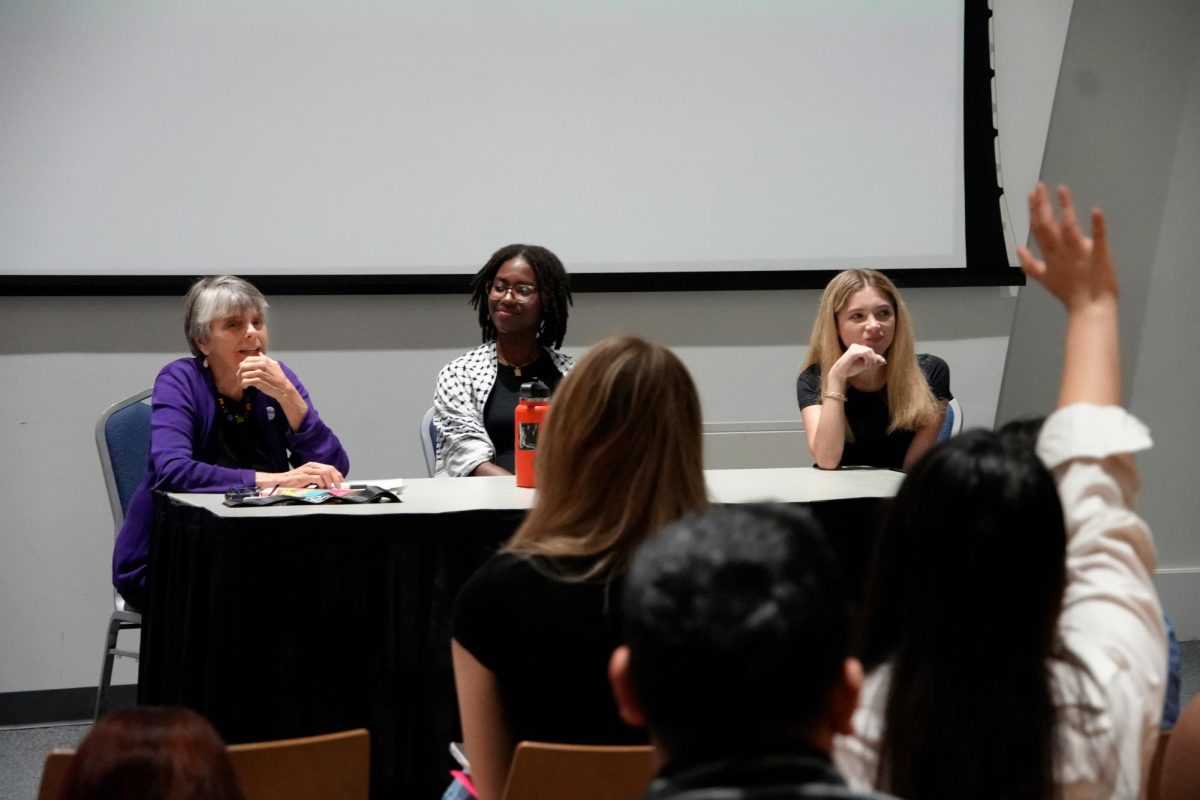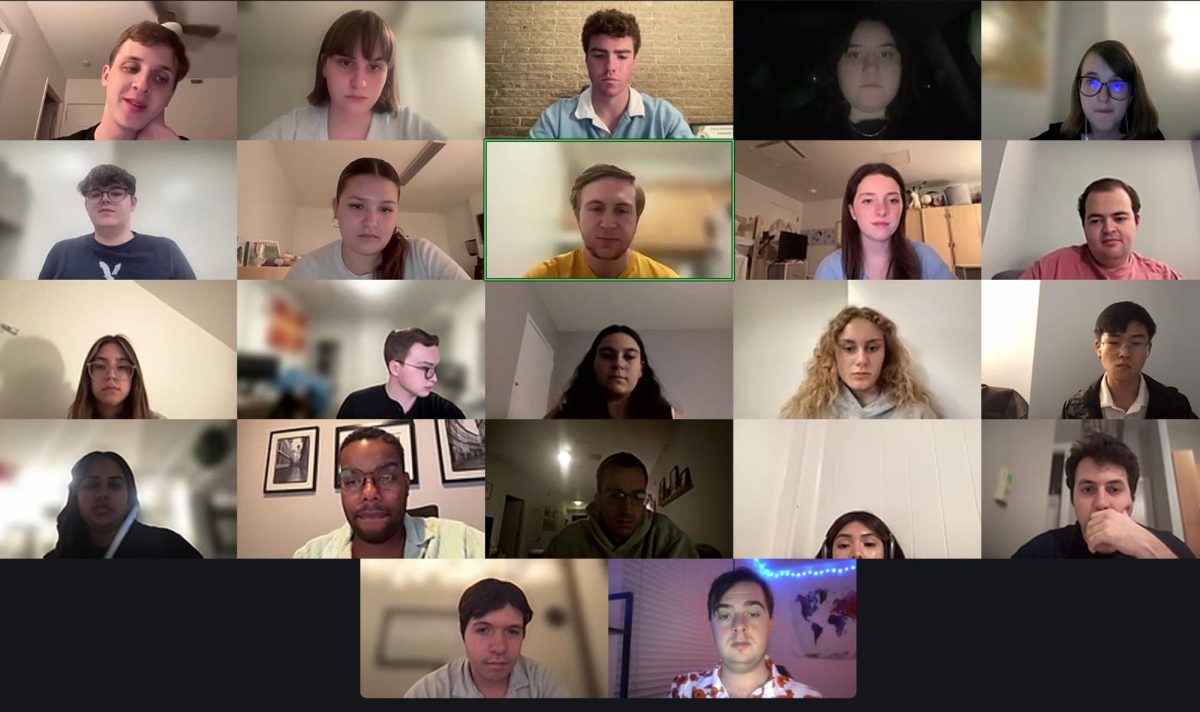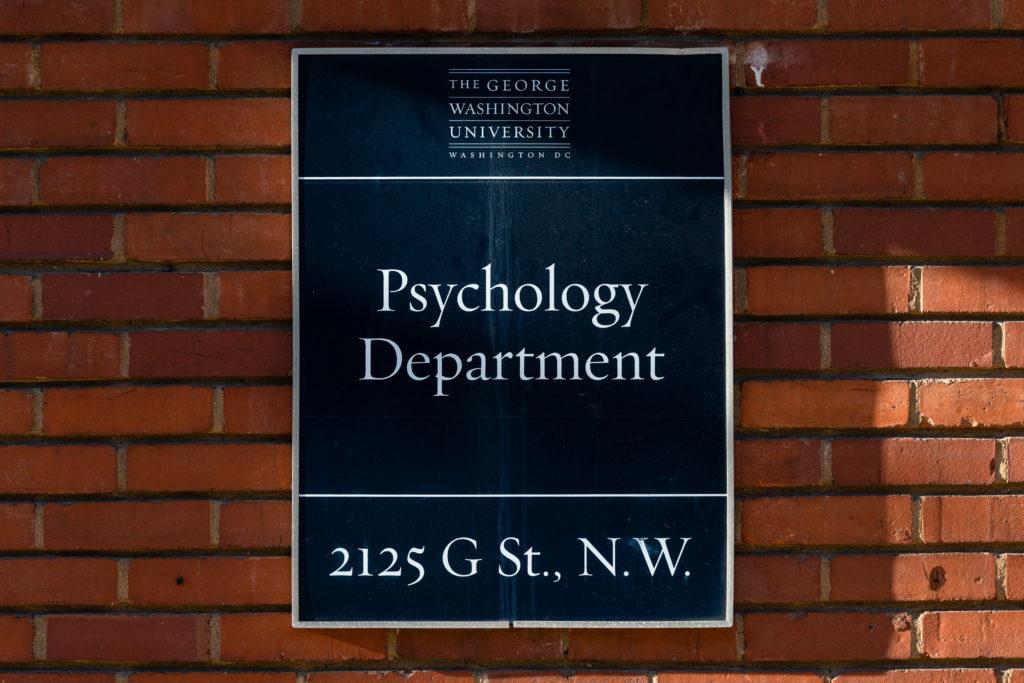The flashy girl from Flushing credits her well-being to one secret – healthy eating.
Healthy eating advocates and local food policymakers talked about improving local access to natural and nutritious foods Thursday afternoon at a day-long Food Tank Summit in the Jack Morton Auditorium.
Six panelists spoke about food access in the fourth group of the day including Fran Drescher, best known for her lead role in the sitcom The Nanny and the current president of Cancer Schmancer, a cancer-prevention organization. Mary Cheh, a D.C. Council member who has introduced bills about school nutrition and food store regulations, and Tricia Kovacs, a local and regional food systems policy advisor for the U.S. Department of Agriculture, also sat on the panel.
Here are the main takeaways for the panel:
1. Local government leading the way
The moderator for the event, The Washington Post food writer Tim Carman, introduced the conversation by describing D.C.’s complications with access to healthy foods, especially in areas like Anacostia.
Cheh, the Ward 3 D.C. Council member, contradicted Carman and said that she would categorize the city’s job of providing fresh foods as “fabulously successful.” She said she has passed bills that allow grocery stores to donate food after the sell-by dates on the label and give stores the incentive to open locations in areas of D.C. that could use fresh food options.
“The array of things that we’ve done has been almost breathtaking,” she said.
She said that though the current federal government might not have the same priorities for local fresh foods, local governments like the D.C. Council have an opportunity to promote healthy eating and make fresh foods available to more people.
“It’s the local governments, city governments and others, that really lead the way,” Cheh said. “That’s why it’s especially important now that we co-focus our attention here.”
Mike Koch, the executive director of FRESHFARM farmers markets, said the chain is looking to expand local fresh food options in D.C. and add four more markets this spring.
2. You are what you eat
Drescher, who is a cancer survivor, spoke on the panel about her healthy eating habits and the importance of being a consumer of food products that aren’t genetically modified and grass-fed. She added that she believes GMOs can cause autoimmune problems and other illnesses and suggested that natural foods can be a holistic medical solution.
She said people need to be more conscious about the foods that they consume, and the extra time it takes to prepare healthy meals with fresh, natural ingredients is worth it for the health benefits.
“GMO, what?” she said. “You gotta read the labels. It takes a little longer when you’re not unconscious.”
3. Reframing the conversation on food access
Christopher Bradshaw, the executive director of Dreaming Out Loud, Inc., a nonprofit that focuses on food access in D.C. said that the country needs to reframe the conversation of healthy food access, adding that racism penetrates every institution in our society. By reframing conversations on food access, it can lead people to act toward justice in society, he said.
Bradshaw said that society is at a point where people need to act and have an honest conversation about food access and justice in the country. He said everyone in the country needs access to clean water to grow adequate food, and cited examples like the lead-contaminated water in Flint, Michigan.
“When we’re talking about crafting policy and repairing some of the damage that we see in communities, that frame is the frame that we have to carry into our policies and into our day-to-day work,” he said.




